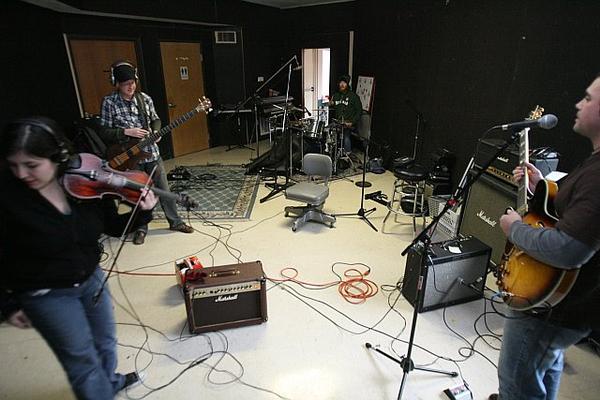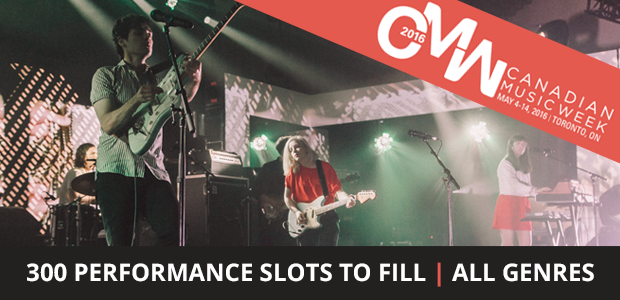 Image via bobbyowsinski.blogspot.com
Image via bobbyowsinski.blogspot.com
This is an excerpt from The Music Producer's Handbook by Bobby Owsinski. It has been reprinted here with permission.
Maybe the most crucial time in the entire recording process is the time before you actually record, which is known as pre-production. Almost always, the more time you spend in pre-production, the smoother the recording will go. It's in pre-production where the songs are chosen, arrangements worked out, and parts are learned so well that the only thing to concentrate on during recording is the performance.
Getting to know you
Pre-production sometimes is so much more than the process of working out songs. For a producer working with a new artist or band, it's a time of getting to know each other. It's important for the producer to learn the likes and dislikes of the artist, be it food, music, or politics, as well as their working habits and idiosyncrasies. Knowing these things can help the producer determine how far to push a singer, or discover what gets the best performance out of the guitar player, or the signs of when the drummer is getting tired, or the hot button issues of the day to stay away from. If you're going to be working closely with an artist even for a short time, the more you know about him or her, the better you can serve the project.
[5 Tips for Effectively Communicating With Your Producer]
One of the most important aspects of getting to know an artist is learning what music she loves, was influenced by, and is listening to now. One of the most effective ways I’ve heard of doing this back in the days of vinyl record albums was for the producer to go to the artist’s house and have them throw a bunch of albums from their collection on the floor and have them describe what they liked and didn’t like about each of them. You can still do this with CDs or an iPod playlist. Among the questions to ask might be:
- What do you like or dislike about the artist you're listening to?
- Do you like the sound of the recording?
- What recordings do you like the sound of?
- What are some of your favorite records? Why?
- What are your biggest influences? Why?
- If you have a body of work as a producer already, what does the artist like about you? Why?
You can probably add any number of additional questions, but can you see where this is heading? This is the information that you need to help attain the artist's vision. It gives you a common point of reference so you can say, "Let's go for a sound like the lead guitar on The Cure's Boys Don't Cry," and have the artist know exactly what you mean because you've found out in pre-production that's one of his favorite songs. Or if the artist says to you, "Can we get the sound like on the Arctic Monkey's Still Take You Home?" you'll know exactly what he's talking about.
Selecting the songs
Selecting the songs for the project is usually a function of how much pre-production time you have. If you don't have a deadline to worry about, you might work on songs that have strong hooks but are incomplete or weak arrangement or structure-wise. If you don't have a lot of time, you might be looking for only the songs that are in the most record-worthy shape that you'll know you can easily record and have them sound good.
Songwriting is a craft, and it gets better the more you do it as you learn what works and what doesn't. Usually, the more you record, the more attuned your ear gets to arrangements, so an artist or band that's on album number four will have songs that are much more together than an artist or band on record number one. Because of that experience, the songs will be in better shape, any changes can be made faster, and the pre-production time will be shorter.
It's usually a good idea to work up at least one extra song other than the ones intended for recording. There's two reasons for this. First, if an intended song just doesn't sound right during basic tracking for some reason, you have an alternative available. Second, sometimes you have a little extra time during basics where you don't have quite enough time to set up for overdubs, so it's nice to have an extra song to take advantage of the opportunity.
Pre-production rehearsals
The pre-production rehearsal is where much of the heavy lifting of the project takes place. This is where the songs get honed to where they're deemed ready for recording. Here are a number of tips and tricks to get the most out of your pre-production time.
You gotta hear yourself
It's really hard for players to hear the nuances of their parts and how they integrate with all the others in the band if they can't hear themselves and everyone else equally well. One of the problems that young bands have is cranking up the volume right off before they really learn a song or make any changes to parts or arrangements. I've found that it's best to learn the song or change the parts at low level first so everyone can hear each other's parts, then play it at their normal stage volume once things are worked out. This will save you a lot of time later when you're trying to figure out why something isn't sounding right and you have to go player by player, part by part to find out why.
In fact, sometimes the best rehearsals are the ones with only acoustic guitars and drum pads in someone's living room. This is surprisingly effective, since it's easy to hear what everyone's playing and especially easy to hear the vocals (works great for harmonies). Of course, bands that have been gigging for a while find this a lot easier to do than new players together for a short time.
Practice in the round
A really good rehearsal technique is to set up in the round where everyone is facing one another, instead of setting up like you would onstage. This allows everyone to hear themselves really well. It's also the way that almost everyone records, since it's so important to have eye contact when you're doing a take. Playing in the round usually means that that everyone has to control their volume a bit so they don't blow out their fellow band members, but that's not such a bad thing, is it?
A few rehearsal tips
No matter what kind of music you're producing, here are a few rehearsal tips to help things go a bit smoother and get the most out of your pre-production time.
- When going over a song, stop as soon as there's a train wreck, and work it out. Talk it over to see what everyone is playing, then play just that part until everyone gets it. Sometimes the problem may be in the middle or end of a section, so if they're able to play just that section, great. It's pretty easy to work out. Most bands just can't get into it unless you start four bars before or even at the beginning of the section to work it out. That's okay, whatever it takes to make things sound great!
- Find the part of the song that needs the most work and concentrate on that first. Slow the song down to where it's easy to play, then bring it up to speed when everyone can play it cleanly.
- Sometimes it's best to start with the chorus, especially the out-chorus, since it usually repeats. If a band is working on groove or tempo, the out-chorus is the section of the song that's played the most anyway and probably has the song's hook, so it's easy to remember. Starting with the out-chorus can give you confidence about playing the rest of the song.
Producer/engineer Bobby Owsinski is one of the best selling authors in the music industry with 23 books that are now staples in audio recording, music, and music business programs in colleges around the world, including The Mixing Engineer’s Handbook, Social Media Promotion for Musicians, Music 4.0: A Survival Guide for Making Music in the Internet Age, and more. He’s also a contributor to Forbes writing on the new music business, and he’s appeared on CNN and ABC News as a music branding and audio expert. Visit Bobby's music production blog, Music 3.0 music industry blog, Forbes blog, podcast, and website.







